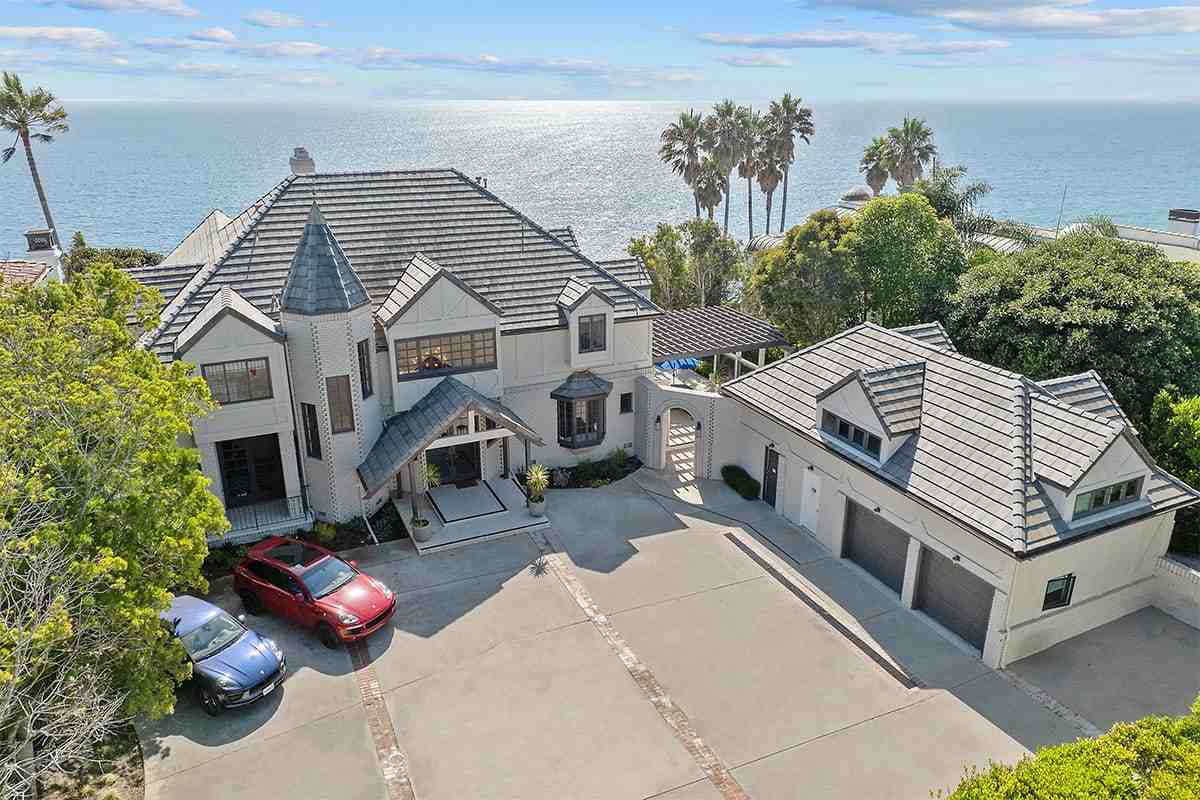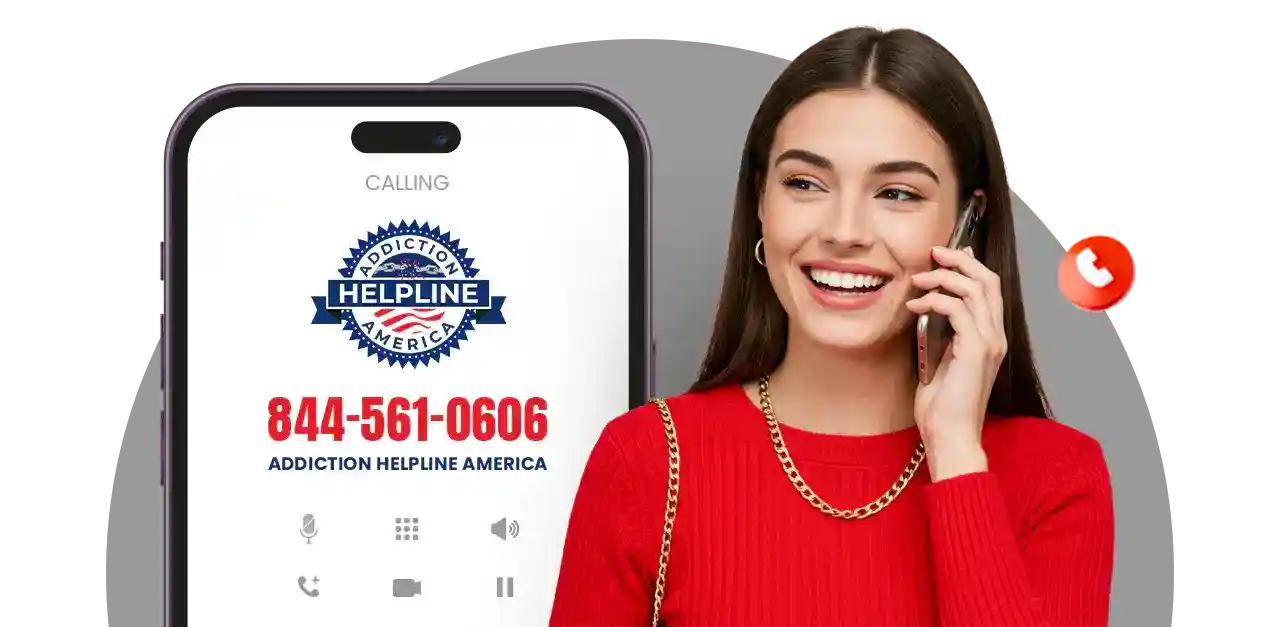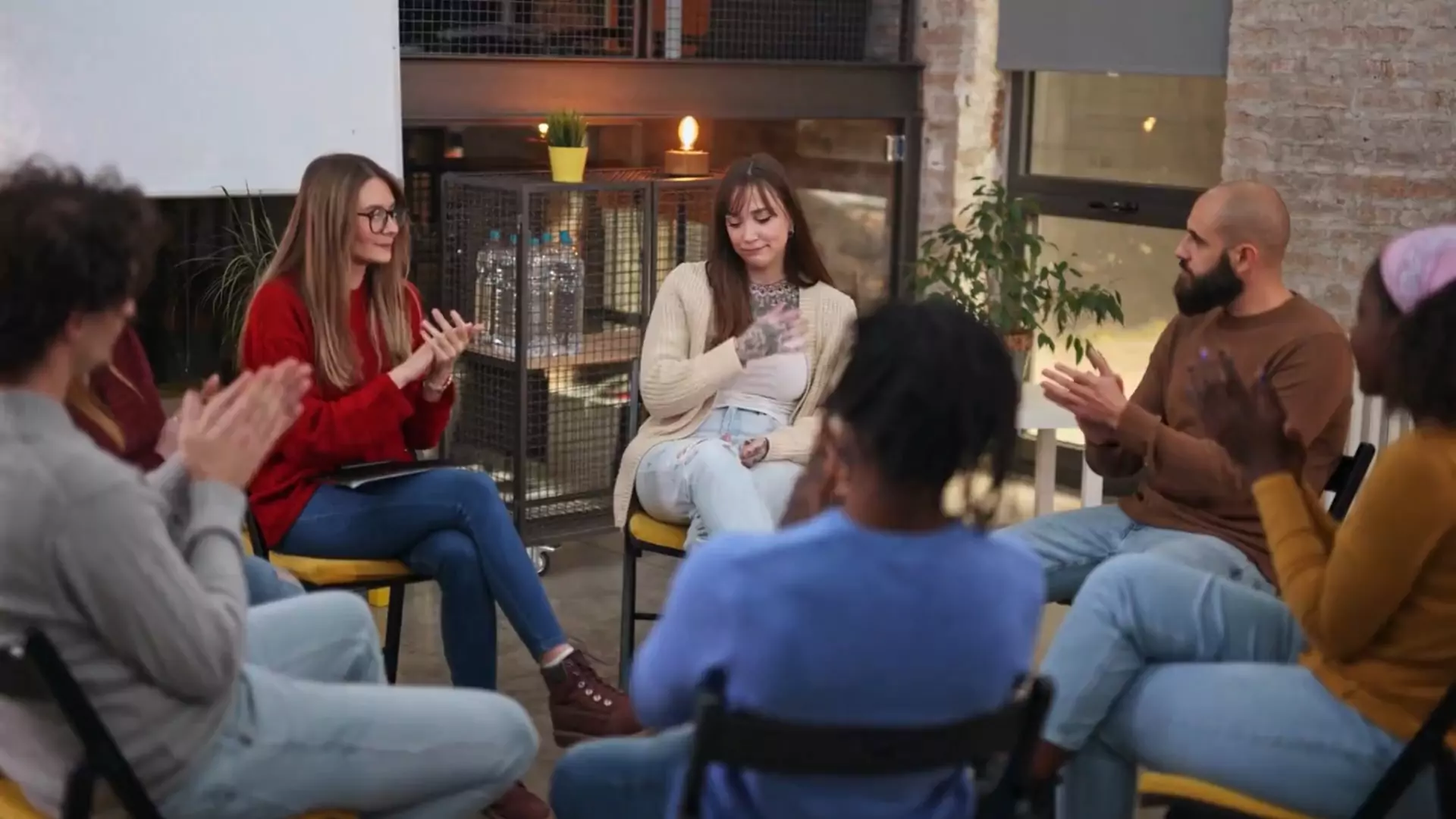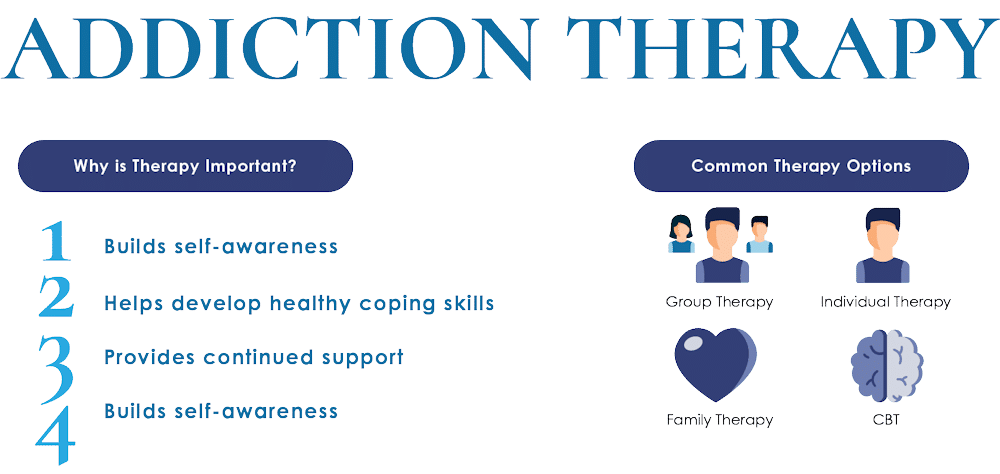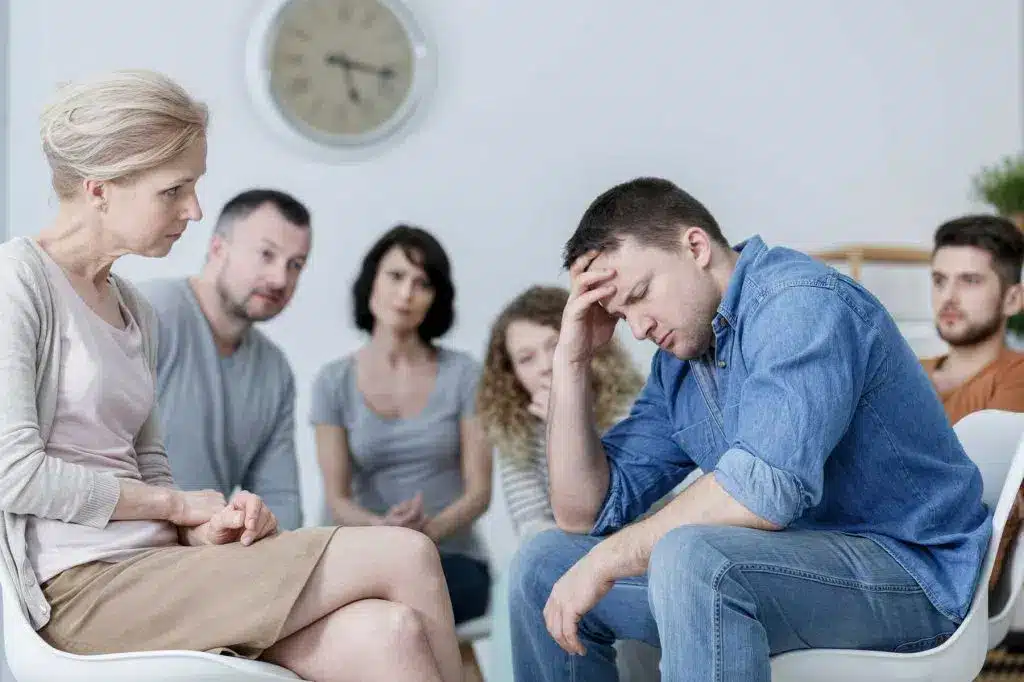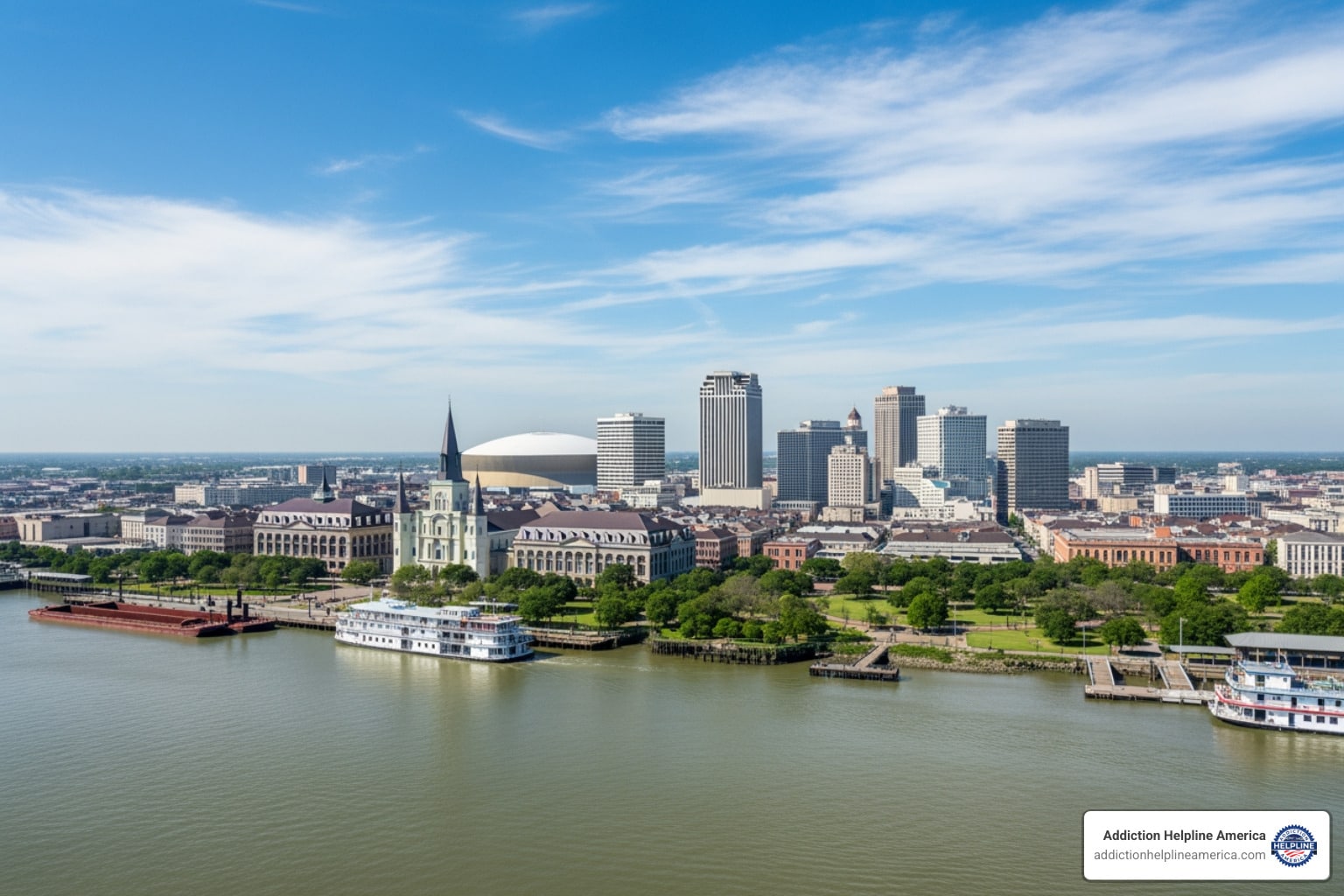
Understanding the Drug Addiction Crisis in New Orleans
Drug addiction New Orleans is a public health emergency affecting thousands. If you need immediate help, here’s what you need to know:
Quick Facts About Drug Addiction in New Orleans:
- 499 accidental drug-related deaths occurred in Orleans Parish in 2022
- Fentanyl was detected in 89% of these deaths
- 10.8% of people aged 12+ in the New Orleans metro area have a substance use disorder
- Drug overdose deaths nearly doubled homicides in 2022 (499 vs. 265 murders)
- Free Narcan is available at four NOFD fire stations across the city
The numbers are stark. Drug overdose deaths in New Orleans have hit record highs, with the synthetic opioid fentanyl appearing in nearly 9 out of 10 drug-related deaths. Methamphetamine use is also surging statewide.
But there is hope. New Orleans has mobilized a response involving health departments, treatment centers, and harm reduction programs. Resources exist to help individuals and families break free from addiction.
This guide provides an overview of the drug addiction New Orleans crisis and how to find help. You’ll learn about the problem’s scope, available treatment options, and how to start your recovery.
At Addiction Helpline America, we help people in New Orleans find the path to recovery. Our 24/7 confidential helpline and referral services connect you with the right resources, from crisis intervention to long-term treatment.

Key terms for Drug addiction New Orleans:
The State of Drug Addiction in New Orleans: A Statistical Overview
New Orleans is facing a drug crisis that affects families across the city. To understand how to help, we must first look at the scope of the problem.
The primary drug threats have changed. Fentanyl, a synthetic opioid up to 50 times stronger than heroin, is now the number one threat. Scientific research on Fentanyl shows that a lethal dose can be as small as two milligrams. Methamphetamine, a powerful stimulant, is also surging. A new threat is Xylazine, or “tranq,” a veterinary sedative mixed into illicit drugs. Since it is not an opioid, Narcan cannot reverse its effects. Scientific research on Methamphetamine details how stimulants damage the brain and body.
The crisis extends beyond illicit drugs. High rates of alcohol misuse are intertwined with the city’s social culture, and alcohol dependence is a serious issue that often co-occurs with mental health challenges.
Substance use and co-occurring mental health disorders like depression, anxiety, or trauma are often linked. In the New Orleans metro area, 10.8% of the population (93,000 people aged 12+) has a substance use disorder, mirroring state and national trends. The metro area’s binge alcohol use rate of 28.6% is higher than state and national averages, highlighting the need to recognize when drinking becomes harmful.
The Overdose Crisis by the Numbers
The numbers demand attention. In 2022, Orleans Parish recorded 499 accidental drug-related deaths, nearly double the 265 homicides that year. Drug overdoses are killing more people in New Orleans than violent crime.
Alarmingly, fentanyl was detected in 89% of those deaths. This powerful opioid is often mixed into other drug supplies, so users may take it unknowingly.
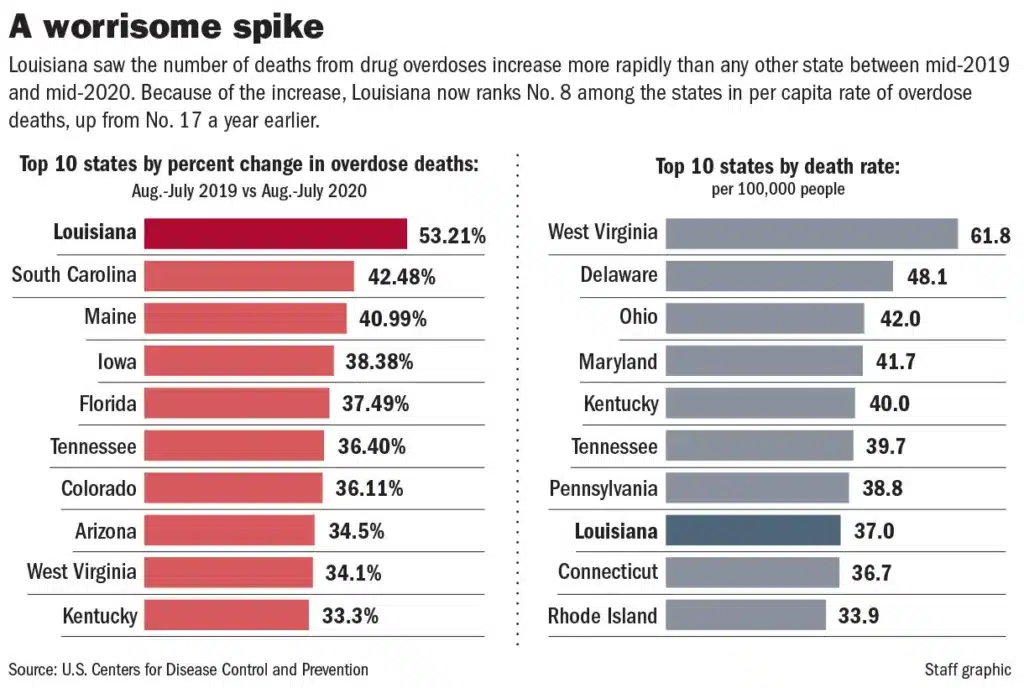
Statewide trends are also troubling. Louisiana saw 2,711 drug-involved deaths in 2021. Deaths from synthetic opioids like fentanyl jumped from 307 in 2019 to 1,177 in 2021. Stimulant-involved deaths also climbed, rising from 372 in 2019 to 927 in 2021. This rapid growth highlights the need for intervention.
These statistics represent our neighbors, friends, and family. For more details on the state’s opioid crisis, review Louisiana: Opioid-Involved Deaths and Related Harms.
Substance Use and Mental Health in the NOLA Metro Area
In the New Orleans metro area, about 15.2% of the population (131,000 people aged 12+) used an illicit drug in the past year. While the 10.8% substance use disorder rate aligns with broader trends, the metro’s 28.6% binge alcohol use rate is notably higher than state and national averages.
Mental health is a key factor. In the metro area, 7.4% of adults had a major depressive episode in the past year. Substance use and mental health issues often feed into each other, so effective treatment for drug addiction New Orleans must address both.
Statewide, the 2022-2023 National Survey on Drug Use and Health shows nearly 20% of Louisianans 12+ had a substance use disorder (11.27% alcohol, 12.17% drugs). Opioid Use Disorder affected 3.75% of this group.
Most concerning is that 76.46% of people in Louisiana who needed substance use treatment did not receive it. Barriers like cost, stigma, and lack of information prevent people from getting care. This treatment gap is why organizations like Addiction Helpline America exist: to connect people with available treatment.
Understanding the scope of the problem helps mobilize resources and reduce stigma. For complete data, see the LOUISIANA – National Survey on Drug Use and Health. The good news is that New Orleans is fighting back with coordinated efforts, and recovery is possible.
A Coordinated Response: How New Orleans is Fighting the Addiction Crisis
Facing drug addiction New Orleans can feel overwhelming, but you’re not alone. The city has mobilized a network of agencies and organizations to fight this crisis.
The New Orleans Health Department (NOHD) leads the charge with comprehensive strategies covering prevention, harm reduction, treatment, and recovery support. A key resource is the Opioid Settlement Funds, providing New Orleans with approximately $18 million over 18 years. The NOHD oversees these funds, using them to expand evidence-based programs that save lives.
The city’s response is powerful due to collaboration among public agencies, healthcare providers, and community nonprofits that create a support network for crisis intervention, treatment, and long-term care.
For more details on the city’s comprehensive approach, visit Behavioral Health – Topics – Opioid & Harm Reduction – City of New Orleans.
The Role of Local Initiatives and Community Support
Community engagement is central to the city’s fight. The DEA’s ‘Operation Engage’ initiative, for example, involves neighborhoods through meetings and youth programs. Local public behavioral health agencies serve as lifelines for residents by connecting people to mental health and addiction services.
The Sobering Center, a 25-bed facility, is an innovative program. It offers a safe place for intoxicated individuals to sober up and connect with long-term recovery services, diverting them from ERs and jails. The Law Enforcement Assisted Diversion (LEAD) program also diverts non-violent offenders with substance use or mental health issues toward case management, treating addiction as a health crisis.
Harm Reduction and Access to Care
Harm reduction aims to keep people alive until they are ready for recovery. This philosophy has saved countless lives in New Orleans.
Narcan (naloxone) distribution is a key defense against fatal overdoses. In 2023, the NOHD provided over 1,176 doses through outreach and 760 to partners. As a result, bystander Narcan administration increased by 92.6% from 2022 to 2023. Free Narcan is available at four New Orleans Fire Department (NOFD) stations across the city, no questions asked.
The city has also evolved its response by permitting fentanyl and xylazine test strips. In Fall 2023, the NOHD purchased 13,200 xylazine test strips to help prevent tragedies.
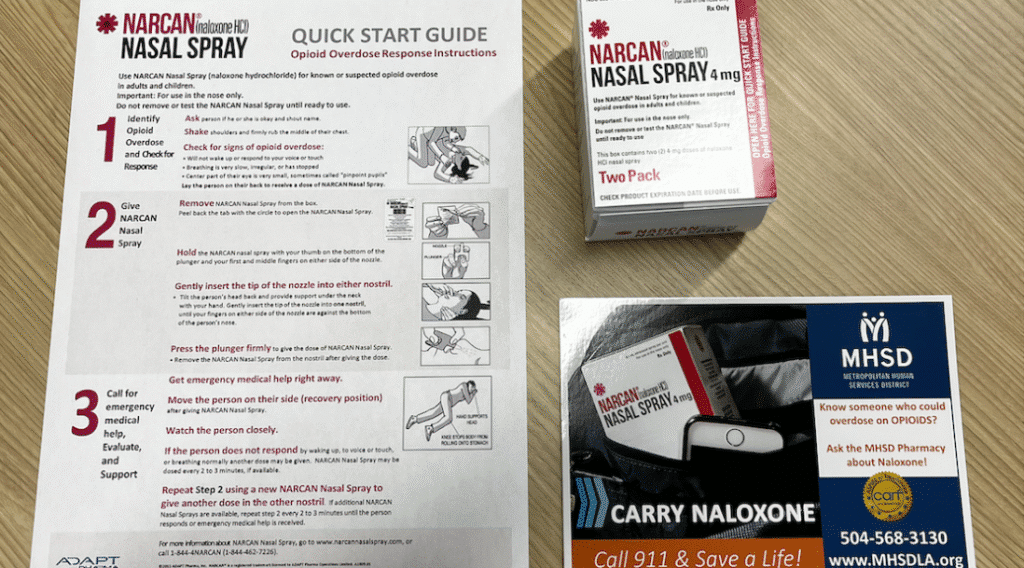
Access to treatment remains a challenge due to wait times. To help, the city and partners provide tools that show real-time availability. You can also contact Addiction Helpline America 24/7 for information, referrals, and crisis intervention.
Community-based organizations are also vital, providing peer support, housing, and job training. They help people rebuild their lives, which is essential for sustainable recovery.
Finding Help: A Guide to New Orleans Drug Addiction Treatment Centers and Programs
When facing drug addiction New Orleans, understanding your treatment options is key. While the journey can feel overwhelming, a comprehensive range of services exists to support you at every stage. Treatment follows a continuum of care, adapting to your changing needs. You may start with intensive support and transition to more flexible options. Here are the main types of treatment available.
Medical Detox and Inpatient Residential Care
For many, detoxification is the first step. Medically-supervised detox is crucial for safely managing withdrawal symptoms as your body clears itself of substances. Local programs specialize in this phase, offering 24/7 medical care and emotional support.
Following detox, inpatient or residential treatment provides a structured, trigger-free environment. You live at the facility, focusing on healing through individual and group therapy. Local non-profit and private providers offer medically supported detox and inpatient rehab that address the physical and psychological aspects of addiction.
When searching for residential treatment for drug addiction New Orleans, look for programs accredited by organizations like SAMHSA or CARF, which indicate high standards of care. For personalized help finding accredited programs, explore More info about Addiction Helpline America’s New Orleans resources.
Outpatient Programs and Community Support
Outpatient programs offer a flexible path forward, allowing you to live at home while receiving professional treatment.
Intensive Outpatient Programs (IOPs) involve several hours of therapy each week, often with flexible scheduling. Partial Hospitalization Programs (PHP) offer a higher level of care, with daily treatment sessions. Local providers offer a range of behavioral health and recovery support services.
Recovery residences, or sober living homes, bridge the gap between intensive treatment and independent living. They provide a structured, drug-free environment with peer support. Building a sober support network is also a powerful element of recovery. This includes 12-step programs like AA and NA, peer support groups, and alumni programs. For more information on outpatient resources, visit More info about Addiction Helpline America’s outpatient resources.

Navigating Your Search for Drug Addiction New Orleans Treatment
Addiction Helpline America offers more than a list. We provide free, confidential, personalized guidance to find the right program for your unique situation. Our specialists are available 24/7 to provide immediate support.
Paying for rehab is a major concern. The average cost in New Orleans is around $59,468, but do not let cost stop you. Multiple pathways exist to make treatment affordable.
- Insurance: Many facilities accept private health insurance from carriers like Blue Cross Blue Shield, Aetna, and Cigna. Your plan may cover a significant portion of services.
- Medicaid and Medicare: These provide crucial coverage, sometimes covering the full cost. Public behavioral health agencies are a vital resource for uninsured or Medicaid-eligible individuals.
- Other Options: Many facilities offer sliding scale fees, payment assistance, or flexible payment plans. Some even have scholarship funds.
Treatment is more accessible than you might think. Let us help you explore your options. Find New Orleans treatment centers with Addiction Helpline America to see the possibilities.
Frequently Asked Questions about Addiction Treatment in New Orleans
What are the first steps to getting help for drug addiction in New Orleans?
Taking the first step is often the hardest, but you don’t have to do it alone. If you’re struggling with drug addiction New Orleans, immediate help is available.
- Call Addiction Helpline America: Our team is available 24/7 to provide free, confidential guidance and connect you with the right resources.
- Reach out to a treatment center directly: Many providers offer confidential consultations to discuss your needs and next steps.
- Use an online locator: You can explore options using our resource pages and treatment finder. Find New Orleans treatment centers with Addiction Helpline America.
- In an emergency: Call 911.
Where can I get free Narcan in New Orleans?
Narcan (naloxone) reverses opioid overdoses and can save a life. Free Narcan is widely available in New Orleans.
- New Orleans Health Department (NOHD): The NOHD distributes free Narcan kits at community outreach events and trainings.
- New Orleans Fire Department (NOFD): You can pick up free Narcan at four NOFD stations: Magazine Street, Decatur Street, Read Boulevard, and General DeGaulle Drive.
- New Orleans EMS: Paramedics can provide a Narcan ‘Leave Behind Kit’ after responding to an overdose.
- Partner Agencies: The NOHD also distributes Narcan through partner agencies, health centers, and community organizations.
We encourage everyone to get trained and carry Narcan. Friends, family, and community members can all help prevent overdose deaths in our fight against drug addiction New Orleans.
What if I can’t afford addiction treatment?
Cost should not be a barrier to treatment. While treatment can be expensive, multiple pathways exist to make it accessible, regardless of your financial situation.
- Medicaid: Available to eligible Louisiana residents, Medicaid is accepted by many treatment centers and can cover a wide range of services.
- Public Behavioral Health Agencies: These serve as safety nets for uninsured or Medicaid-eligible individuals and can connect you with publicly funded treatment.
- Federally Qualified Health Centers (FQHCs): These centers often offer addiction treatment with sliding scale fees based on income.
- State-Funded Programs: Louisiana provides resources for substance use treatment, accessible through state agencies.
- Private Center Assistance: Many private centers offer sliding scale fees or financial assistance. Be upfront about your financial concerns when you call.
Our specialists at Addiction Helpline America can help you steer these financial options and connect you with affordable care. Don’t let cost stop you from reaching out for help.
Conclusion: Your Path to Recovery Starts Today
The drug addiction New Orleans crisis has touched countless lives. The statistics are sobering: 499 accidental drug deaths in 2022, with fentanyl in 89% of cases, and overdose deaths nearly doubling homicides. These numbers represent our friends, family, and neighbors.
But there is also real hope. New Orleans has mobilized a coordinated response, bringing together health departments, treatment centers, and community organizations. From Narcan distribution to innovative programs like the Sobering Center, the city is fighting back.
Recovery is happening now. We see it in the 92.6% increase in bystander Narcan administration from 2022 to 2023 and in every person who seeks treatment and emerges stronger. The resources outlined in this guide, from medical detox to outpatient care, exist because recovery is possible. Solutions are available for concerns about cost or where to start. Financial aid can make treatment accessible, and VIA LINK (211) is available 24/7.
The most important step is the first one. Reaching out takes courage, but you are not alone. At Addiction Helpline America, we provide free, confidential guidance to help you find the right program. Our specialists are ready to connect you with support, day or night.
Recovery is achievable. With the right support and treatment, you can reclaim your life. Let the resilience of New Orleans guide your journey.
Your path starts today. Find comprehensive alcohol and drug addiction treatment in New Orleans, Louisiana today.

Our helpline is 100%
free & confidential
If you or someone you care about is struggling with drug or alcohol addiction, we can help you explore your recovery options. Don’t face this challenge alone—seek support from us.
Programs
Resources
Will my insurance
cover addiction
treatment?
We're ready to help
Find the best
drug or alcohol treatment
center
Are you or a loved one struggling with addiction? Call today to speak to a treatment expert.



